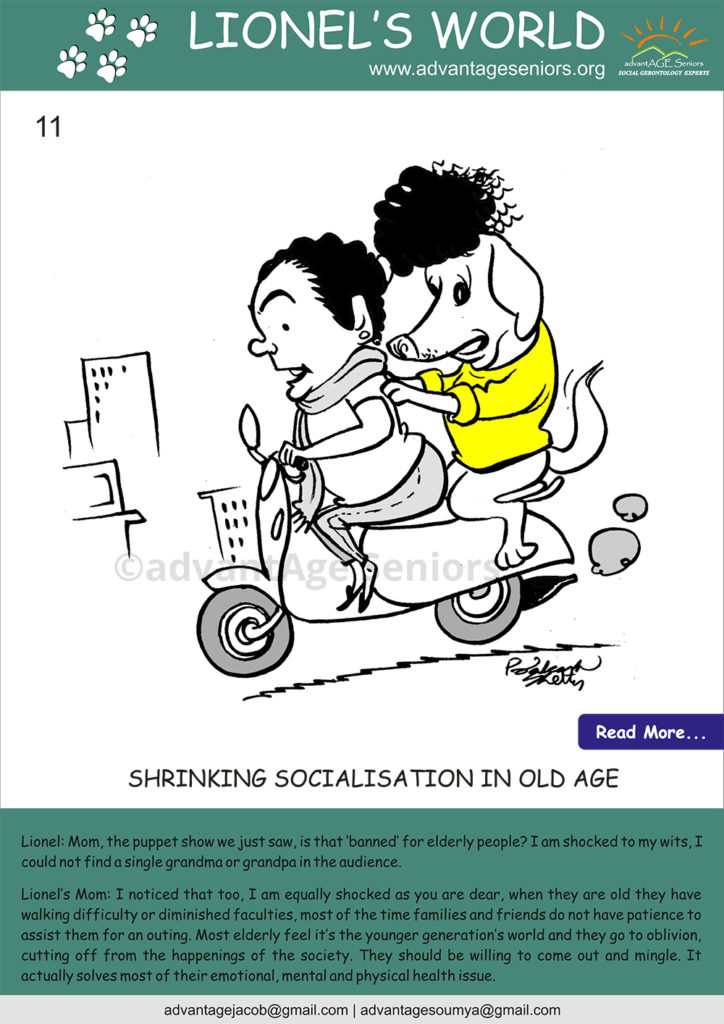
Ideally it is believed that when you are old and free and have more time at handyou have a bigger social circle and friends, but in an ironic twist, as we age social circle tends to shrink.
Conventionally this scenario is thought to be due to our own awareness of our limited future time, or once we retire, we tend to think it’s doing away with the socialization.
In most conservative societies, retiring is akin to retiring from social life. Surprisingly advancement of research and finding helped us break our stigma against it.
A study conducted by Brigham Young University to find out what makes humans live up to 100 years and beyond gave results that were unassuming and myth-breaking. The study proved that, the top reason for staying healthy longer was “social Integration”.
People who were willing to integrate socially in later lives lived longer than those that did not.
No matter how old you are or how your health may be declining, social engagements are important. Social integration in later life has multi fold benefits in terms of health and emotional wellbeing.
Ageing comes with varied role changes, ending working with retirement, taking up the role of grand parenting, looking for help from children and immediate families those who, perhaps were once your dependents.
There may be varied key reasons that might stop older adults from being socially active such as diminished faculties, mobility difficulties, lack of resources to access places, financial constraints to entertain guests, or simply bound by the post retirement filial responsibilities.
Whatever be the reason, being socially engaged promotes sound mental health.
